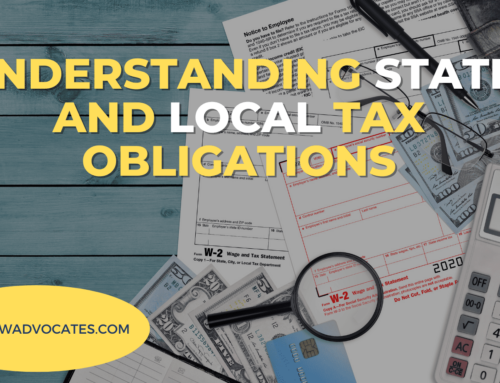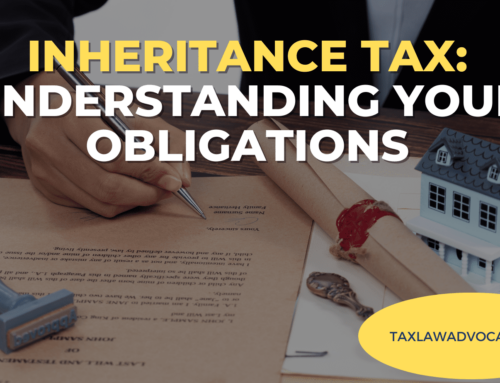Retirement is a well-deserved phase in life where you can relax and enjoy the fruits of your labor. Your retirement income typically comes from three main sources: Social Security benefits, distributions from individual retirement accounts (IRAs) and retirement plans, and funds from savings and other investments. However, the tax implications of these income sources can significantly impact your overall financial well-being during retirement. This is where strategic retirement planning and expert guidance from Tax Law Advocates can make a considerable difference.
Key Takeaways
– Retirement income often comes from multiple sources, and each may have its tax considerations.
– Living in a tax-friendly state can significantly reduce your overall tax burden.
– Reallocating your investments can help make them more tax-efficient.
– Delaying or avoiding required minimum distributions (RMDs) can save on taxes.
– Being strategic about Social Security benefits can minimize your tax liability.
Live in a Tax-Friendly State
Choosing your retirement location wisely can be one of the best tax strategies for saving money on your retirement income. The Tax Cuts and Jobs Act has made this decision even more crucial, especially until 2025 when federal income tax deductions for local property, state, and local income or sales taxes are capped at $10,000.
Consider relocating to one of the eight states with no income taxes: Alaska, Florida, Nevada, South Dakota, Tennessee, Texas, Washington, and Wyoming. New Hampshire is another tax-friendly state, taxing only interest and dividends.
Federal law prohibits states from taxing residents on retirement benefits earned in another state. If you earned a pension in a high-tax state like California or New York and then moved to a no-tax state like Florida or Texas, you could avoid state tax on that pension income.
Many states also offer low-income taxes or special breaks for retirement income. Some have no tax on Social Security benefits or certain portions of income from IRAs and retirement plans. Tax Law Advocates can help you explore the tax landscape of different states and guide you in choosing the right place for your retirement.
Reassess Your Investments
Changing your investment holdings in retirement can help reduce taxes and preserve your principal. Here are some investment strategies to consider:
Municipal Bonds: Interest on municipal bonds is free from federal income tax. Keep in mind that the interest income may impact the tax on your Social Security benefits.
Dividend Stocks: Qualified dividends from U.S. corporations and certain foreign corporations often enjoy more favorable tax rates than ordinary income. Depending on your taxable income, these dividends might be taxed at a rate of 0%, 15%, or 20%.
Capital Losses: You can use losses from the sale of securities and other property to offset capital gains, reducing your overall tax liability. If you have excess capital losses, up to $3,000 can be used to offset ordinary income. Any additional losses can be carried forward to offset future gains.
Avoid or Postpone RMDs: If you’re at least 73 years old, you can avoid paying taxes on required minimum distributions (RMDs) from your traditional IRA by transferring the funds directly to an IRS-approved public charity. As of 2023, the age for RMDs has been raised to 73. To qualify for this tax-saving strategy, the IRA trustee or custodian must transfer the funds directly to the charity, and you must receive a written acknowledgment from the charity. This strategy has a $100,000 annual limit, which can only be used for IRAs.
Deferred Annuities: Consider investing in a qualified longevity annuity contract (QLAC) to postpone RMDs and ensure a continued income stream without running out of retirement savings. Up to $135,000, or 25% of your account balance, from your IRA or 401(k) can be used to purchase a QLAC within the retirement account. QLAC funds are exempt from RMD calculations. Payments from a QLAC must start by age 85 and are taxable.
Before committing to a QLAC, be sure to weigh the pros and cons, as these annuities often come with higher fees and no cash value that can be accessed before annuitization.
Be Strategic About Social Security Benefits
Social Security benefits can be subject to taxes depending on your total income. If you don’t need Social Security immediately, delaying your benefits until age 70 can be advantageous. This delay increases your monthly benefits without current taxation. The portion of your benefits that is taxable depends on your provisional income, which factors in your other income.
Here are some tips to minimize taxes on Social Security benefits:
Reduce Your Adjusted Gross Income (AGI): Contributions to deductible IRAs and 401(k) plans can lower your AGI if you are still working.
Limit the Sale of Securities: Try to limit sales of securities that could push you into a higher tax bracket for Social Security benefits.
Utilize Roth IRAs: Roth IRA withdrawals are tax-free in retirement and do not count in the computation of the tax on Social Security benefits. Consider using this source for income while preserving tax benefits.
Tax Law Advocates can provide personalized advice and strategies tailored to your unique financial situation, helping you make the most tax-efficient choices for your retirement income.
Retirement should be a time to savor the fruits of your labor without the burden of unnecessary taxes. Effective retirement planning and tax efficiency strategies can go a long way in securing your financial future during retirement. Tax Law Advocates is here to assist you in navigating the intricate world of retirement taxes and helping you make informed decisions.
To explore the tax benefits of retirement planning and receive personalized advice, contact Tax Law Advocates at 855-612-7777 or visit our website. Start your retirement journey with tax efficiency in mind and let us be your trusted guide in achieving a fulfilling and financially secure retirement.






